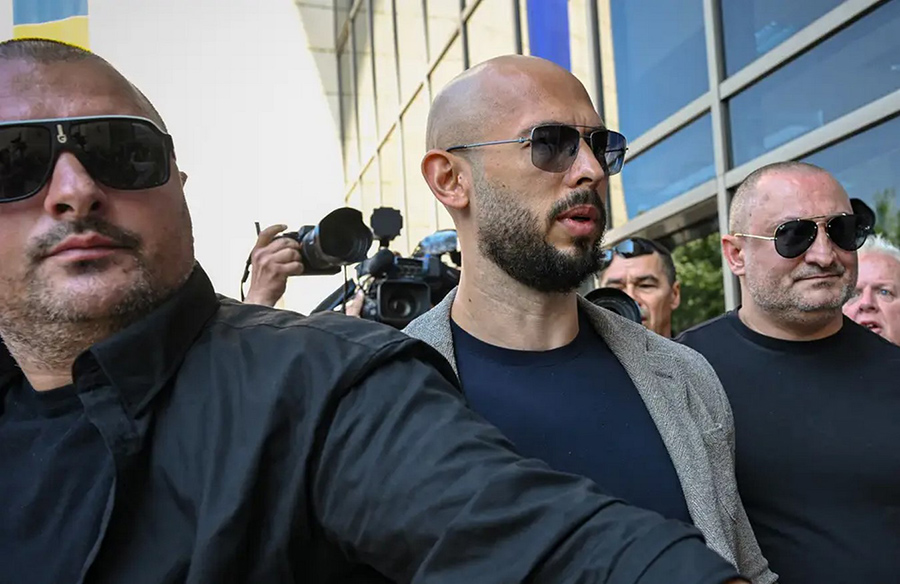
Andrew Tate, the self-proclaimed misogynist influencer, and his brother Tristan have been detained in Romania and are facing extradition to the UK following an arrest warrant issued by British authorities. Allegations against the Tate brothers, including sexual aggression dating back to 2012-2015, have resurfaced, leading to their detention in Romania. Despite vehemently denying all charges, they are now entangled in a legal battle that has ignited controversy and conspiracy theories among their followers.
Legal Proceedings and Reactions
The arrest warrants were issued amid accusations of sexual offenses, including exploitation, which prompted Romanian authorities to detain the Tate brothers. In response, their legal team issued a statement vehemently denying the allegations, describing them as baseless and expressing dismay at the revival of decade-old charges. The court’s decision to detain them has sparked a flurry of reactions, with Tate’s supporters rallying behind him, claiming innocence, and alleging a conspiracy orchestrated by undisclosed entities.
Influencer’s Controversial Legacy
Andrew Tate has long been a polarizing figure, facing criticism for his sexist and inflammatory remarks. Despite accusations of human trafficking, rape, and promoting harmful ideologies, he maintains a significant following, particularly within the manosphere movement. As part of this movement, Tate advocates for traditional gender roles and often espouses views that denigrate women, earning both fervent supporters and vehement detractors.
Conspiracy Theories and Online Influence
The news of Andrew Tate’s detention has fueled unfounded conspiracy theories among his followers, who speculate about the motives behind his arrest. Tate himself has perpetuated these theories, referencing a vague conspiracy against him orchestrated by the so-called “elite.” His supporters view his detention as a form of suppression orchestrated by powerful entities threatened by his influence. Despite being deplatformed from major social media platforms, Tate’s online presence persists, with his followers disseminating his content and defending his actions.
Legal and Ethical Implications
The Tate brothers’ legal ordeal underscores the complexities of addressing online misconduct and the challenges of holding influencers accountable for their actions. While legal proceedings unfold, concerns persist about the impact of Tate’s rhetoric on impressionable individuals, particularly young men who idolize him. Calls for responsible media coverage and critical examination of Tate’s influence echo sentiments regarding the need to combat toxic ideologies propagated online.
In conclusion, Andrew Tate’s detention and the subsequent proliferation of conspiracy theories highlight broader issues surrounding online influence, accountability, and the intersection of law and digital culture. As legal proceedings continue, the case serves as a reminder of the ethical responsibilities associated with wielding influence in the digital age and the imperative to confront harmful ideologies propagated in online spaces.




Leave a Reply